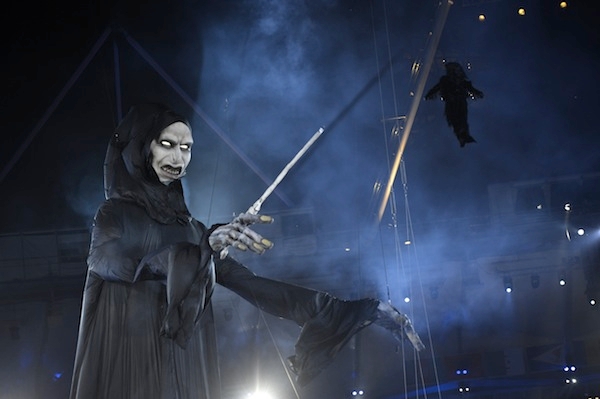Michael Gove had a very good autumn statement: not only did he get £1bn for new free schools and academies, but he also got performance-related pay for teachers. Gone will be the days of automatic rises and pay based on length of time served, replaced by rises based on merit as in many other professions. As James notes in his column this week, accepting the recommendations of the School Teachers’ Review Body is a ‘full-bore assault on union power’. So, unsurprisingly, the unions are terribly upset by the change. Chris Keates, general secretary of the NASUWT, released this response:
‘The war on teachers waged by the Coalition government continues. The value of a national pay framework has been recognised by other pay review bodies but the STRB appears to be seriously out of step. Teachers may be forgiven for drawing the conclusion that the independent STRB has been leant on.
‘These proposals place virtually unlimited discretion on teachers’ pay in the hands of head teachers at a time when unfairness and discrimination are already rife. The dismantling of the national pay framework is going to be bad for children’s education and bad for the teaching profession.’
If this is war against teachers, Gove has a strange way of doing battle. He is not regionalising pay, which research suggests might not be a bad thing either, but would be disastrous for the Tory vote in the North of England. Instead, he is allowing teachers who perform well to be rewarded with pay rises, and for teachers who bumble along to see their pay do the same.
From Keates’ words, you might be forgiven for thinking that the Education Secretary has appointed Voldemort as an evil overlord of teacher pay, but instead those in charge of how much teachers get paid will be, er, teachers themselves. Keates seems to think that head teachers are the worst possible people to judge how well a member of staff in their school is doing, and whether they should be rewarded for hard work and high performance. Funnily enough, those representing head teachers disagree, with the National Association of Head Teachers saying ‘progression on the basis of good performance is a sensible principle’. But the NASUWT and the NUT are considering industrial action over the proposals.
The same strange distrust of head teachers from unions representing teachers – and from the Labour party – is evident in those groups’ reaction to the announcement that heads can now hire unqualified teachers.
When Gove made this announcement, the NUT claimed it would cause ‘irreparable damage to children’s education’. But why? Why would a head teacher want to appoint a complete no-hoper whose CV – aside from the absence of Qualified Teacher Status – shows they are eminently unsuited to life in the classroom? There’s the argument that a head teacher can pay that unqualified teacher less, but heads do have the performance of their schools to worry about: if they get poor Ofsted ratings and dismal GCSE results because they are hiring dud teachers, then they’ll soon see the error in trying to cut corners by hiring cheap staff. It is in their interest to find the best teachers they can. In tough schools where excellent teachers work extremely hard with challenging pupils, head teachers can now reward their staff, and attract other good teachers with the promises of rapid pay progression. The School Teachers’ Review Body’s report [PDF] says this:
‘These recommendations are designed to make it easier to meet the local needs of schools, reward and promote goo teachers, ensure accountability at a local level for the quality of teaching and to raise the status of teaching as a profession. The freedom to develop pay policies which take account of a school’s specific circumstances should encourage school leaders to take ownership of pay as a tool for improving pupil outcomes.’
Teaching unions exist to represent the interests of their members. But their response to the STRB report seems to be focused on representing the interests of a small group of their members: mediocre teachers who will not see their pay rise because their performance is poor. Tough luck for you if you’re a good teacher who works hard and deserves rewarding with a pay rise, and tough luck if you’re a head teacher, too: according to the unions, you can’t be trusted.







Comments